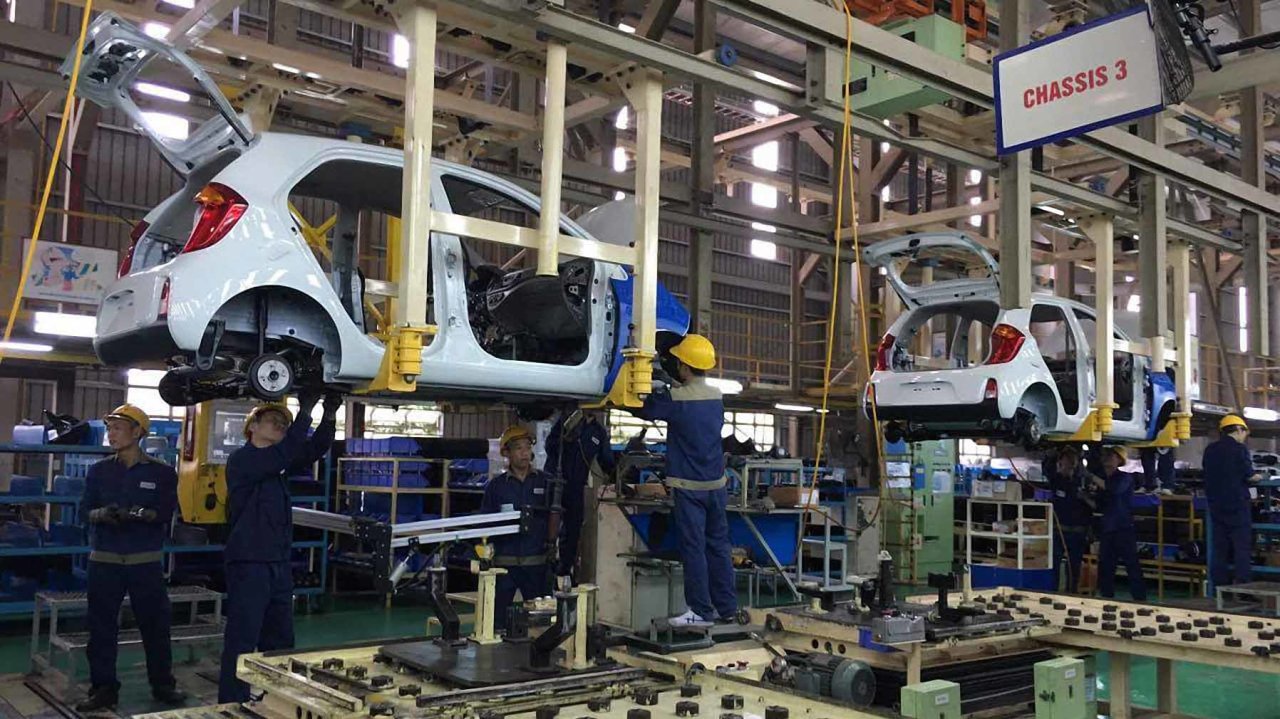As Vietnamese leaders urge the introduction of safeguards to protect domestic auto manufacturers against cheap imports, economic experts say such a move would actually be quite difficult.
Vietnam is eying the establishment of an inter-ministerial team of experts to study measures that might give its domestic automobile industry a boost, which will likely come in the form of safeguards against cheap imports from foreign manufacturers once Vietnam further opens its market by relaxing tariffs.
With a localization rate of only between seven and ten percent, Vietnam’s domestic auto industry is under tremendous pressure from complete built-up (CBU) cars imported from ASEAN countries, which are slated to enjoy zero import tariff in 2018.
ASEAN, or the Association of Southeast Asian Nations, is a politico-economic organization whose members include Brunei, Cambodia, Indonesia, Laos, Malaysia, Myanmar, the Philippines, Singapore, Thailand, and Vietnam.
As part of the 2009 ASEAN Trade in Goods Agreement (ATIGA), Vietnam is gradually reducing tariffs imposed on goods originating from within ASEAN as a means to meet the goal of eventually achieving a regional single market.
Many foreign car brands, mostly from Japan, have already downsized their manufacturing facilities in Vietnam to brace for the establishment of a single market within ASEAN, upon which Vietnam’s cheap labor would no longer be attractive enough to economically outweigh its low rate of localization in car part production.
To protect the auto industry from potential damages caused by these downsizes, safeguard measures are absolutely necessary, according to an official at the Institute for Strategy and Policy Research under Vietnam’s Ministry of Industry and Trade (MIT).
“This policy serves not only as a means to protect domestic production but also as a measure against an increase in car imports that could potentially harm the balance of trade and Vietnam’s foreign currency reserve,” the official explained.
However, another senior official at MIT asserted that it would not be easy for Vietnamese authorities to impose such protective measures, considering the procedure requires a formal request from local businesses coupled with approval from the World Trade Organization (WTO), of which Vietnam has been a member since 2007.
“It is necessary that we provide concrete proof that the number of imported cars into Vietnam has increased substantially over many years, and that such an increase has threatened to hurt the local auto industry, before safeguard measures can be imposed without risking litigation from foreign exporters,” the official said.
In addition, Vietnam can only introduce safeguard measures without facing possible legal issues if it manages to prove that the increased imports were unexpected and unforeseeable, which apparently is not the case, according to experts, as the tax reduction schedule was made available to Vietnam’s auto industry in 2005.
Dr. Vu Thanh Tu Anh, director of research at the Fulbright Economics Teaching Program in Ho Chi Minh City, asserted that auto manufacturers based in Vietnam have enjoyed protective measures for the past 20 years.
From the early 1990s, Japanese car producers such as Toyota and Nissan have promised to increase their localization rates from ten to 40 percent within a decade in exchange for favorable policies concerning their investments in Vietnam, Anh said.
However, automotive manufacturers have failed to deliver on their promises, and instead have been relying solely on distinctive favors to improve their competitiveness in the market.
“When faced with foreign competition following relaxed import tariffs, these manufacturers all delivered similar messages of terminating their assembly lines in Vietnam and plan to import CBU cars instead,” Anh explained. “This shows that safeguard measures do not create competitive businesses.”
Like us on Facebook or follow us on Twitter to get the latest news about Vietnam!





















































